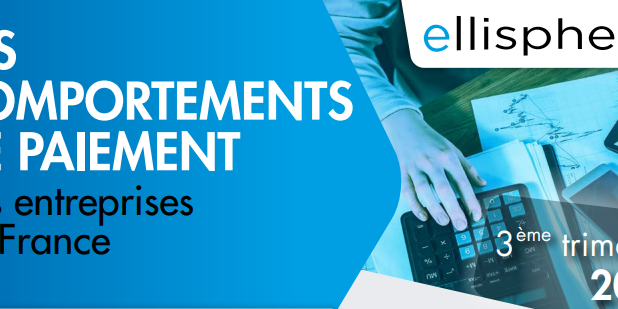What is FCPR?
FCPRs (Fonds Commun de Placement à Risque - venture capital mutual funds) are financial investments in unlisted companies with the following key characteristics:
- At least 50% of its assets are invested in unlisted companies.
- Capital gains may be exempt from income tax under certain conditions.
- This investment offers high potential returns, but comes with a risk of capital loss.
Who can benefit from FCPR?
FCPRs are high-risk investment vehicles. It is possible to lose all or part of the capital invested. As a result, they are aimed at investors who are not afraid to take risks, and who are able to invest sums whose possible loss will have no impact on their finances.
What do FCPRs invest in?
In France, the private equity industry finances nearly 3,000 companies, representing a business activity that directly benefits over 80,000 employees. All sectors of the economy are invested in, and investment themes are diverse:
I am text block. Click edit button to change this text. Lorem ipsum dolor sit amet, consectetur adipiscing elit. Ut elit tellus, luctus nec ullamcorper mattis, pulvinar dapibus leo.
What do FCPRs invest in?
In France, the private equity industry finances nearly 3,000 companies, representing a business activity that directly benefits over 80,000 employees. All sectors of the economy are invested in, and investment themes are diverse:

Geographic
[city or region, European companies...]

Speculative
[companies targeted by takeover bids...]

Economical
[high potential, turnaround company...]

Manager
[green energy, social enterprises...]


Technical
[example: pre-IPO or pre-IPO financing round, leveraged buy-out or LBO].

Ethics
Ethics [respect for certain moral or religious principles...]

sector
[biotechnology, high-tech...]
Why invest in a FCPR?
Investing in a FCPR allows you to :
- Diversify your assets: give your asset allocation a new direction and multiply your investment universe.
- Better returns: in exchange for higher risk, you benefit from higher returns than other asset classes.
- Reduce volatility: private equity is less subject to financial market fluctuations and global events than equities, for example.
- A commitment to the real economy: your investments have a direct impact on the French entrepreneurial landscape and on regional development.
How do I subscribe to a FCPR?
FCPR units can be held either :
- Direct: in your name (also known as "pure registered");
- Via a securities account: the main advantage of this option is that it makes it easier to monitor your portfolio;
- Via a multi-support life insurance contract: the main advantage of this solution is that it guarantees the liquidity of this type of investment. You can ask your insurer to arbitrate your units of account at any time, and thus transfer the funds invested in the FCPR to another vehicle. Life insurance also allows you to benefit from advantageous tax conditions. However, the return on your investment will be burdened by the management fees of your life insurance policy.
- Via a PEA or PEA-PME: to benefit from the tax advantages of these tax wrappers (provided the FCPR is eligible).
Not to be confused with FPCI!
FPCIs and FCPRs have largely the same investment objectives: to invest mainly in unlisted securities. The fundamental difference between these two funds lies in the way the capital is raised.
FCPRs are public offerings that enable them to target individual investors, but in return they are subject to a number of legal obligations, including the need to obtain AMF approval.
On the other hand, FPCIs, which are aimed exclusively at professionals and the like, are not required to obtain approval. It therefore has greater leeway in terms of investment strategy.



What is an FPCI?
A Fonds Professionnel de Capital Investissement (FPCI) is an investment vehicle open to all sophisticated and professional investors with a minimum investment of €100,000, enabling them to invest in unlisted companies. A minimum of 50% of the fund's assets must be invested in unlisted companies.
What do FPCIs invest in?
An FPCI's investment strategy may be focused on a particular economic sector: technology, finance, healthcare, real estate, infrastructure, etc., or on other themes such as geography, growth potential or Corporate Social Responsibility (CSR). There are four types of private equity transaction:
Venture capital
Venture capital is used to finance start-ups with strong growth potential. This type of financing is generally reserved for start-ups. Venture capital funds have a particularly high risk profile, but can yield substantial returns, especially if they have invested in a "nugget".
Development capital
Development capital is aimed at more mature companies that have already proved the validity of their business model and achieved profitability. The aim is to provide financing to enable them to launch new products or expand internationally.
Transmission capital
In general, buyouts involve the shareholders of a company wishing to sell their shares to a fund that acquires control of the company. In most cases, the purchase of the company can be carried out using leverage, i.e., using debt to finance the transaction. This type of operation is known as an LBO, or Leveraged Buy-Out.
Turnaround capital
Turnaround capital transactions are used to finance companies in difficulty. For example, a fund will acquire a majority stake in the distressed company by proposing a turnaround or restructuring plan and providing the financial backing needed to implement it.
What types of investors are FPCIs aimed at?
One of the distinguishing features of the FPCI is the public that can invest in this type of fund. Articles L214-144 of the French Monetary and Financial Code and 423-2 of the AMF's General Regulations set out the conditions for access to an FPCI, restricting it to :
- Professional investors are defined as people who "have the experience, knowledge and skills required to make their own investment decisions and properly assess the risks involved. (L533-16 of the French Monetary and Financial Code)
- Individuals with an initial subscription of 100,000 euros or more
- Individuals whose subscription is carried out "by a service provider acting in their name and on their behalf as part of a portfolio management investment service, under the conditions set out in I of article L.533-13 of the French Monetary and Financial Code and in article 314-11".



